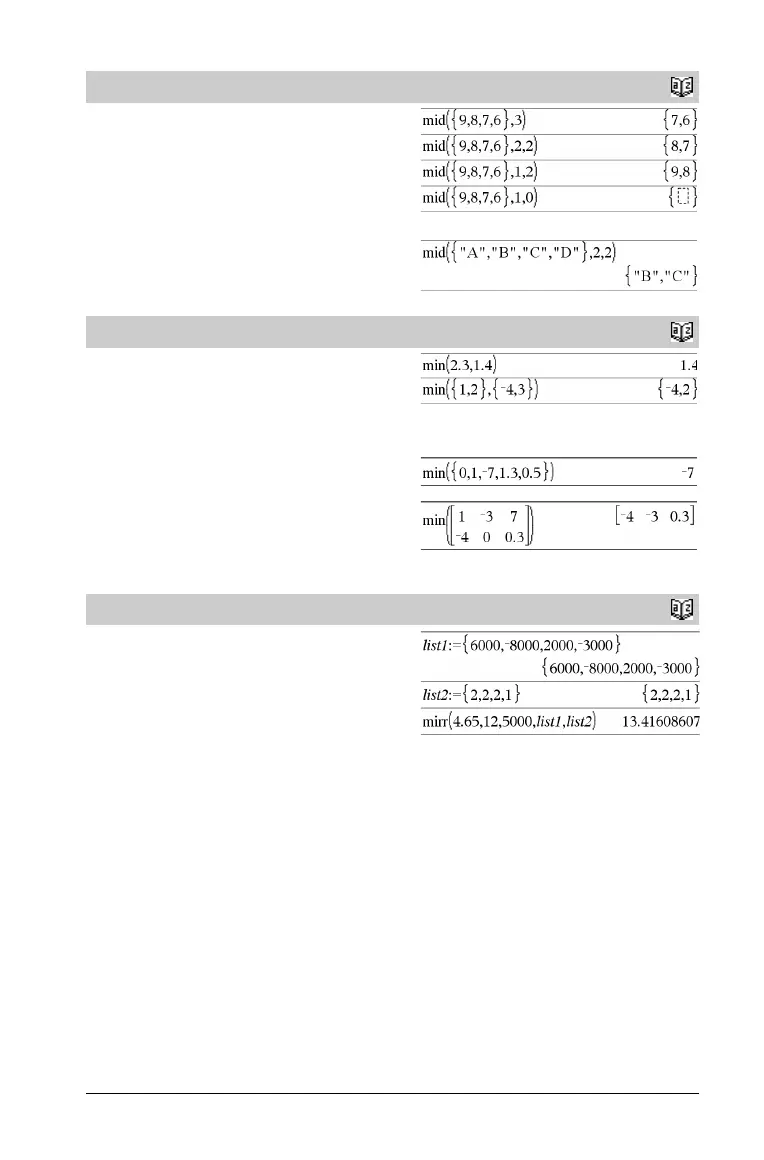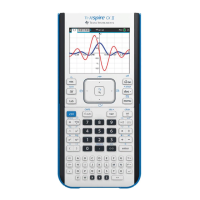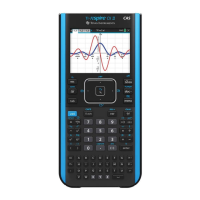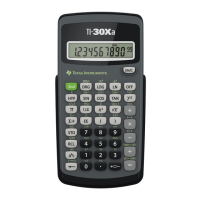TI-Nspire™ Reference Guide 63
mid(sourceList, Start [, Count]) ⇒ list
Returns Count elements from sourceList, beginning with element
number Start.
If Count is omitted or is greater than the dimension of sourceList,
returns all elements from sourceList, beginning with element number
Start.
Count must be
| 0. If Count = 0, returns an empty list.
mid(sourceStringList, Start[, Count]) ⇒ list
Returns Count strings from the list of strings sourceStringList,
beginning with element number Start.
min()
Catalog
>
min(Val ue 1, Va l ue 2) ⇒ expression
min(List1, List2) ⇒ list
min(Matrix1, Matrix2) ⇒ matrix
Returns the minimum of the two arguments. If the arguments are two
lists or matrices, returns a list or matrix containing the minimum
value of each pair of corresponding elements.
min(List) ⇒ expression
Returns the minimum element of List.
min(Matrix1) ⇒ matrix
Returns a row vector containing the minimum element of each
column in Matrix1.
Note: See also max().
mirr()
Catalog
>
mirr(financeRate,reinvestRate,CF0,CFList[,CFFreq])
Financial function that returns the modified internal rate of return of
an investment.
financeRate is the interest rate that you pay on the cash flow
amounts.
reinvestRate is the interest rate at which the cash flows are
reinvested.
CF0 is the initial cash flow at time 0; it must be a real number.
CFList is a list of cash flow amounts after the initial cash flow CF0.
CFFreq is an optional list in which each element specifies the
frequency of occurrence for a grouped (consecutive) cash flow
amount, which is the corresponding element of CFList. The default is
1; if you enter values, they must be positive integers < 10,000.
Note: See also irr(), page 49.
mid()
Catalog
>

